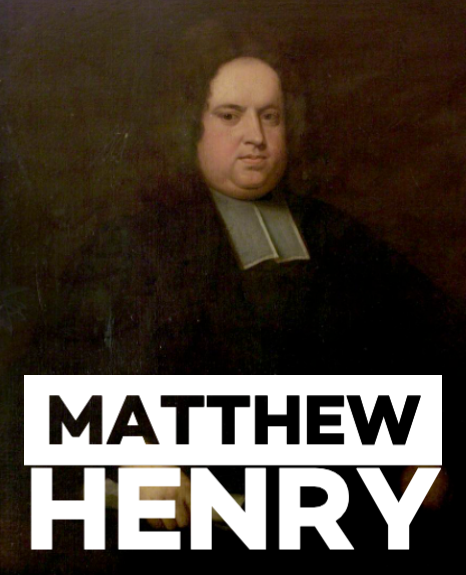Many Christians have read, used, or heard of Matthew Henry’s New and Old Testament Biblical Commentary. Many have seen his Commentary online and without much careful consideration never thought much of the man.
Matthew Henry was born in a farmhouse in a border town between Wales and England. It was around the time of his birth that his father, Philip Henry, was ejected from the pastorate for not complying with the Act of Uniformity. During his childhood, his father, Philip, helped with his education, and at the age of 18, Henry’s father took him to study under the Presbyterian minister, Thomas Doolittle, who was taught by the Puritan minister Richard Baxter. Unfortunately, the place of his study was a nonconforming school and as a result, students were barred from entering Oxford and Cambridge. However, that did not dissuade him from studying, and he pursued further education in law and was admitted to the renowned Gray’s Inn in 1685, where Richard Sibbes once ministered.
Henry returned to London in 1686 and began preaching in his father’s neighborhood and a year later Henry became the minister of the town of Chester (where he ministered for 25 years) and was privately ordained as a minister in London due to the Act of Uniformity. While in Chester, his preaching style gained the attention of many nonconformists and this resulted in his congregation growing to approximately 350 people. In 1687 he married Katherine Hardware, but in 1689 she died during childbirth. The following year he married Mary Warburton and they had nine children with three dying during childbirth. While Henry was living in Chester, his fame was growing and he was also busy holding monthly services in surrounding villages and preaching to prisoners in the castles.
In 1710, a church in Hackney, London, requested Henry to be their minister, and in the summer of 1711, Henry wrote down eleven reasons why it would be beneficial for him to go. A few of those reasons were he would have better access to printers and libraries. This made sense since he was working on his magnum opus, commentary on the entire Bible. The congregation was much smaller in Hackney with fewer than 100 people when Henry arrived. With such a small congregation he preached every day of the week, sometimes two or three times the same day. The spiritual state in London was in major decline which is what drove him to zealously preach the Gospel.
During his time in Hackney, Henry became increasingly ill. He developed diabetes and repeated attacks of kidney stones. However, he still managed to find time to work on and developed his commentary which was published in the hands of many readers. While on a preaching tour, his horse threw him but denying injury he preached at Nantwich on Proverbs 31:18. The congregants noticed that he was not well and were concerned. After the sermon, it was noted that his demeanor was weak and lethargic, and soon he became unconscious and died due to a brain hemorrhage. Despite Matthew Henry’s many battles with health, governmental pressures, long hours of ministering, and working on his commentary, he was committed to the cause of Christ. One reading his biography on his life would notice his tenacity and demeanor, as he was not shy from any conflict, in fact, he was born into it. Henry was a man who constantly rose to the challenge, and sought ways to overcome it for the sake of Christ.
The work of the commentary on the Bible that Henry began in 1704 to the time of his death in 1714, he only got as far as the Book of Acts. Thankfully, it was finished by several faithful ministers after his death. They used many of his sermons and notes to complete the work.
Many historians note that the commentary is Puritan with a heavy emphasis on glorifying God in one’s whole life. Henry’s Biblical commentary has been widely used by many throughout the centuries, some of the more recognized names of preachers and hymn writers are George Whitefield, Charles Wesley, and John Ryland Sr.
It is unfortunate in today’s context many academics skip over Matthew Henry’s commentary. It is often considered “outdated” or not “technical” as more recent commentaries, but that Christians must not ignore the labors of this man. Henry’s work is extremely beneficial especially when it comes to practical applications and understanding of the Scriptures. Many scholars encourage Christians to not discredit Matthew Henry’s commentary, but to hold it in high regard and that his work should be counted among the ranks of Calvin for a commentary set. So, next time you see the option of a Matthew Henry Commentary option when reading your Bible online, consider inquiring what this famous, preacher, teacher, and expositor had to say about the text.

